Health Tips
Poor Memory ≠ Dementia: A Simple Action to Delay Brain Aging!
5 April 2024

As we age, it’s common for memory to decline—forgetting names or where things are placed can cause concern about early signs of dementia. However, according to Japanese dementia specialist Dr. Yukimichi Imai, age-related memory loss and dementia are not the same, and there's no need to worry excessively about occasional forgetfulness. So, how can you differentiate between normal memory loss and dementia, and what can you do to prevent it? Let's explore!
How to Distinguish Between Forgetfulness and Dementia?
Dr. Yukimichi Imai highlights several key differences between dementia and normal forgetfulness, with the most important distinction being self-awareness.
People with normal memory issues recognize when they forget something. They may recall that they had an appointment or placed an item somewhere, but just can't remember the specifics. This type of memory lapse is usually nothing to worry about. In contrast, dementia-related memory impairment involves forgetting the event itself. For instance, the person might not just forget where they placed something but may believe the item is lost or stolen. Similarly, they might not even remember having made an appointment in the first place.
Another key difference is that people with normal forgetfulness can usually remember details when reminded, while dementia patients might completely forget familiar people, places, or events. This memory loss can lead to dangerous situations, such as getting lost when going out alone, and it can also cause communication difficulties with family members.
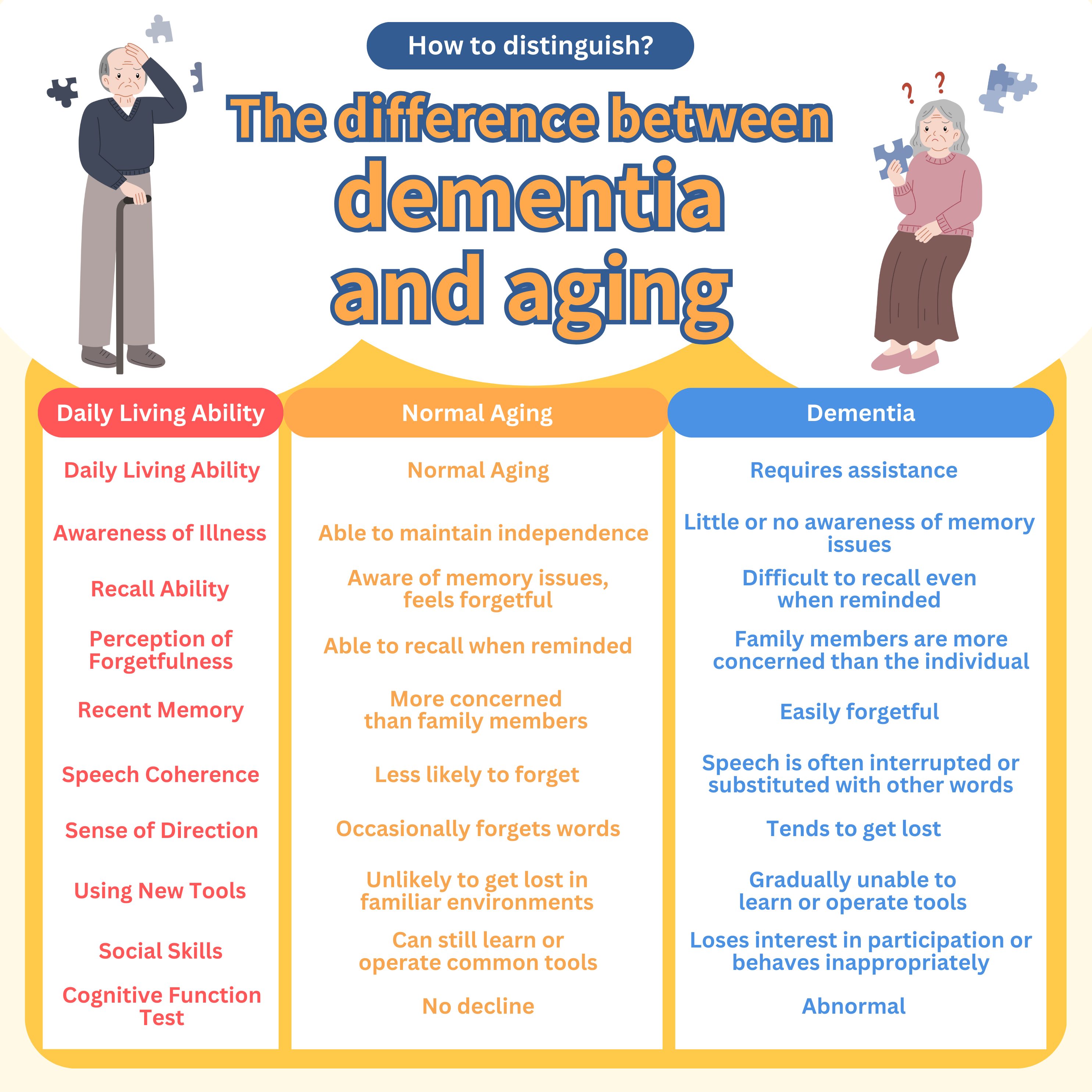
Boost Phosphatidylserine to
Delay Brain Aging and Combat Forgetfulness!

Phosphatidylserine is primarily found in foods like organ meats, meat, fish, and legumes.
What is Phosphatidylserine?
Phosphatidylserine is a membrane phospholipid that is abundant in our brain's "processing center." Approximately 40% of its composition is DHA, which plays a crucial role in maintaining clear thinking and making flexible decisions.
1)Enhances learning and concentration
2)Improves communication skills
3)Reduces stress and fatigue
4)Promotes a happier mood
5)Supports flexible thinking, reasoning, and problem-solving abilities
-
Typically, the daily recommended intake of phosphatidylserine is between 100mg and 300mg.

However, if you're looking to supplement phosphatidylserine through diet alone, you'd need to consume a significant amount of these foods! This could lead to high fat and cholesterol intake and potentially increase the risk of infections (especially from organ meats).
Therefore, relying solely on food, particularly organ meats, is not an ideal way to get sufficient phosphatidylserine. Unfortunately, it's also difficult to absorb the required amount through everyday meals alone.
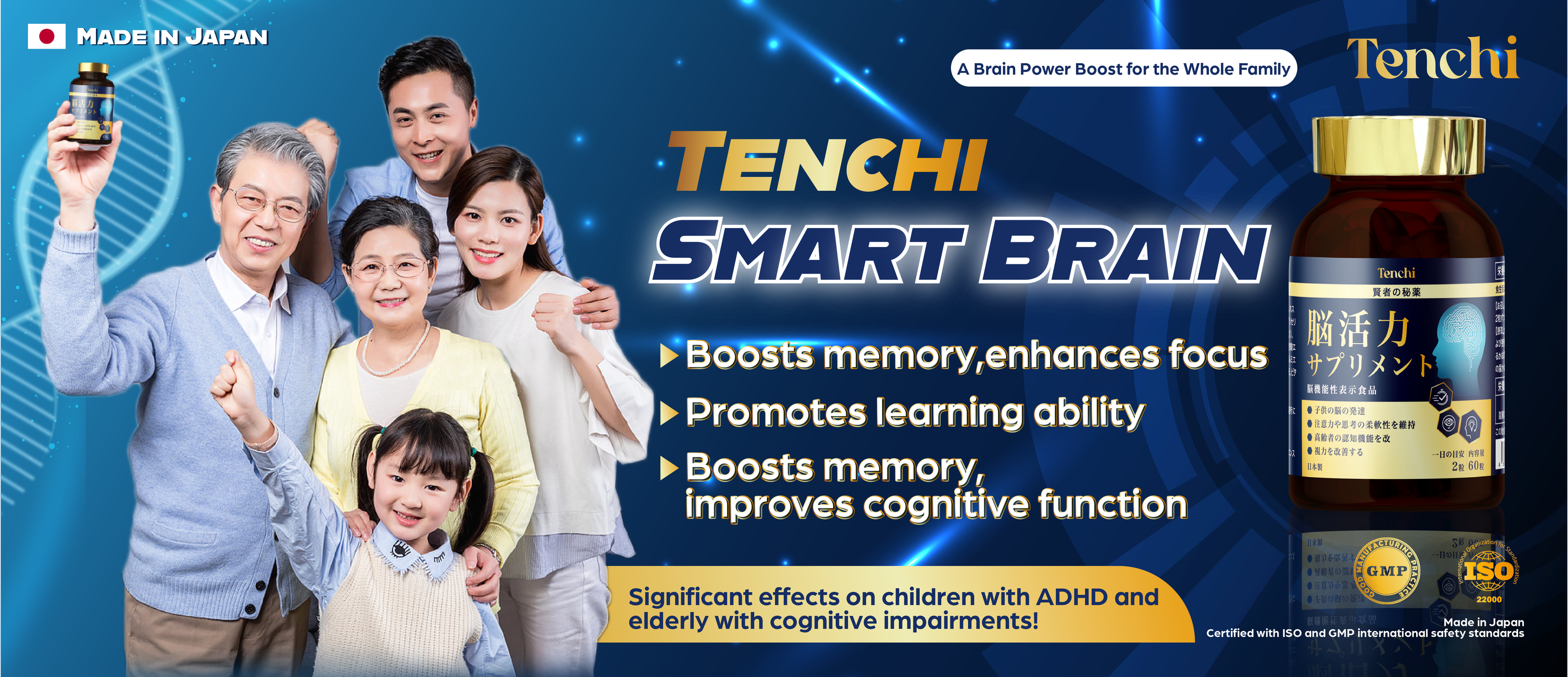
▲ Tenchi Smart Brain is infused with highly concentrated phosphatidylserine, specifically designed to maintain brain health and cognitive function.
Designed for All Age Groups
Elderly: Enhances memory, improves cognitive function, and slows down aging.
Middle-aged Adults: Increases work efficiency, improves focus, and reduces stress.
Youth and Children: Promotes learning ability, boosts academic performance, and fosters good study habits.
Suggested Use
For general use: Take 2 capsules daily after breakfast.
For children with ADHD and elderly with cognitive decline: Take 2 capsules twice daily.
Tenchi Mall
Tenchi Smart Brain

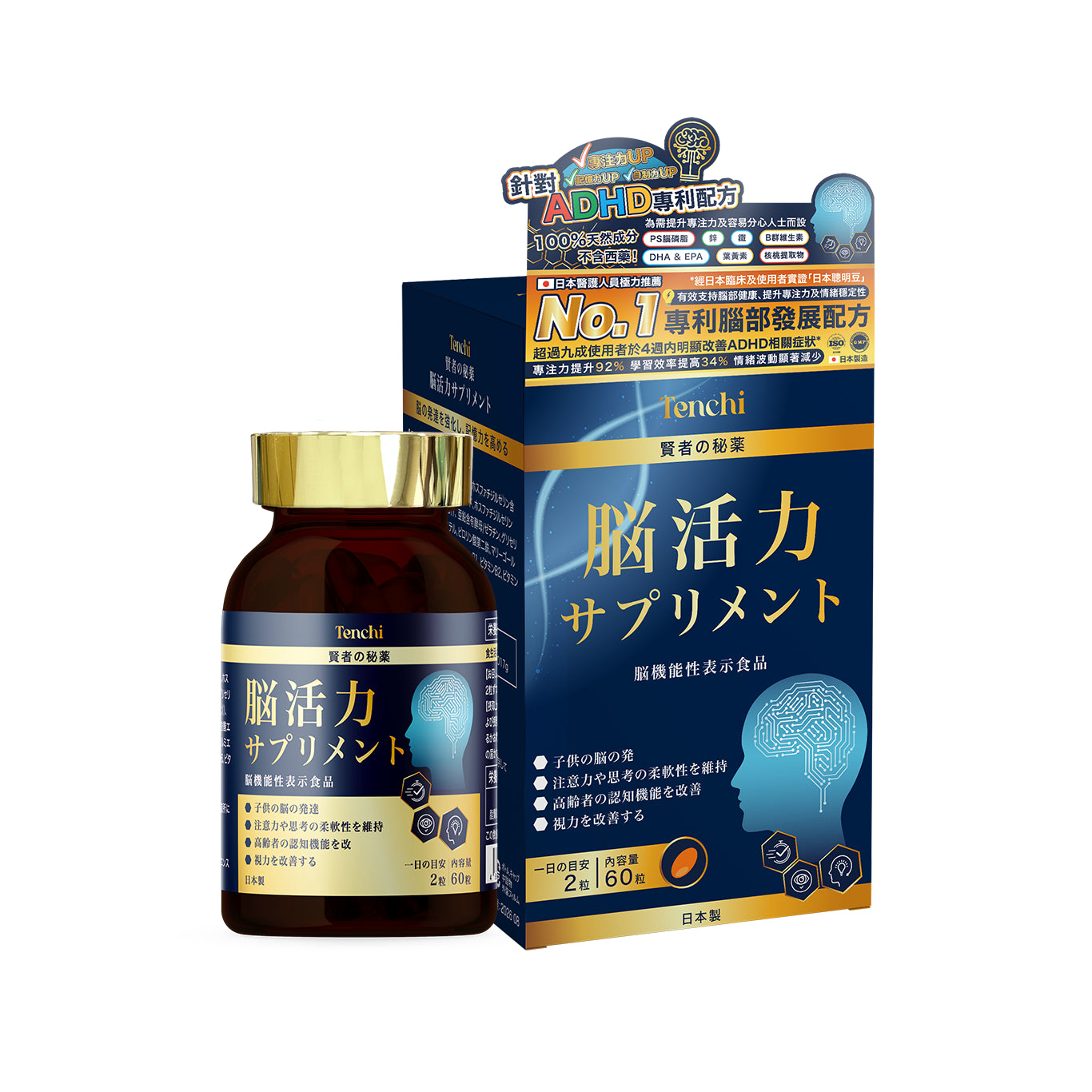
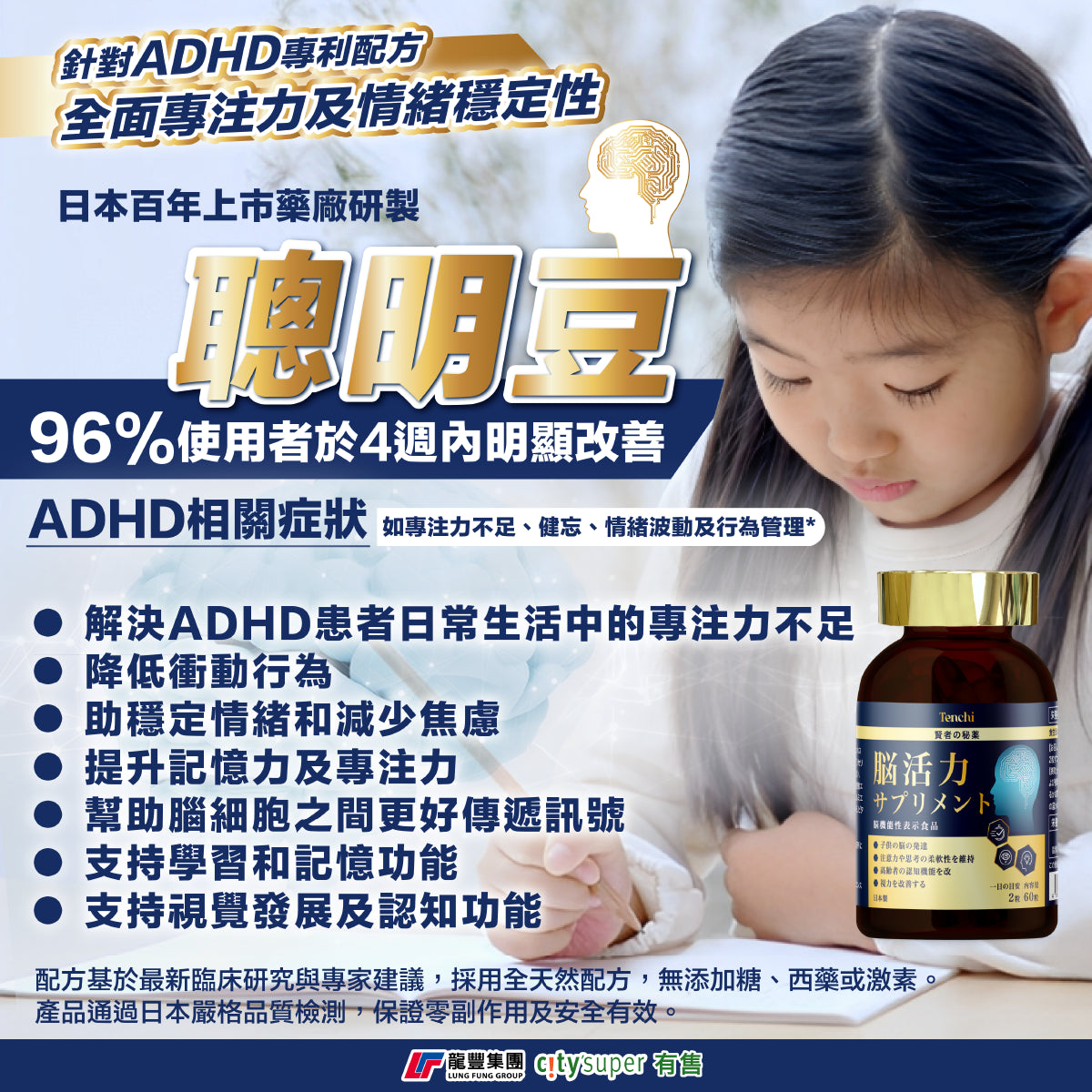
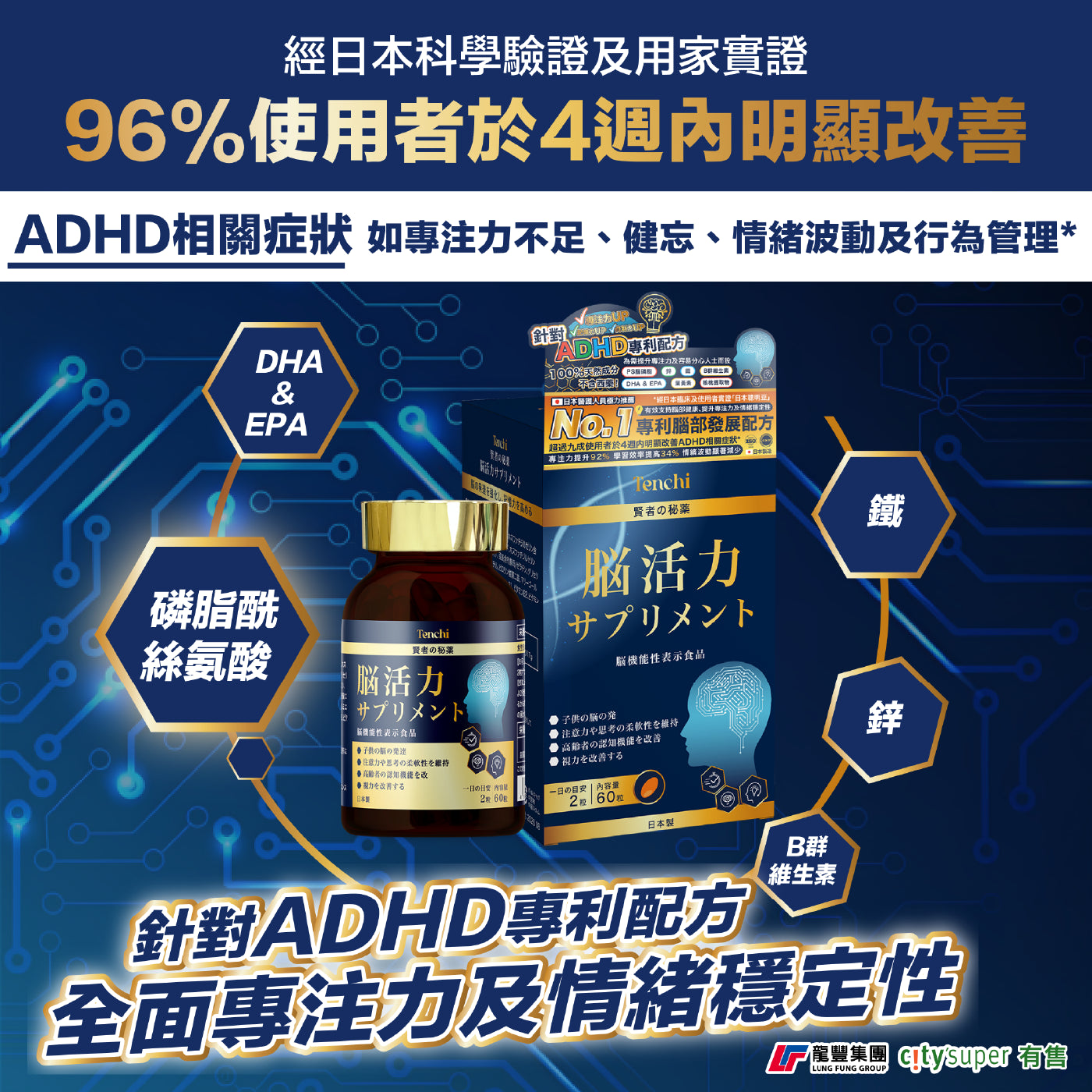
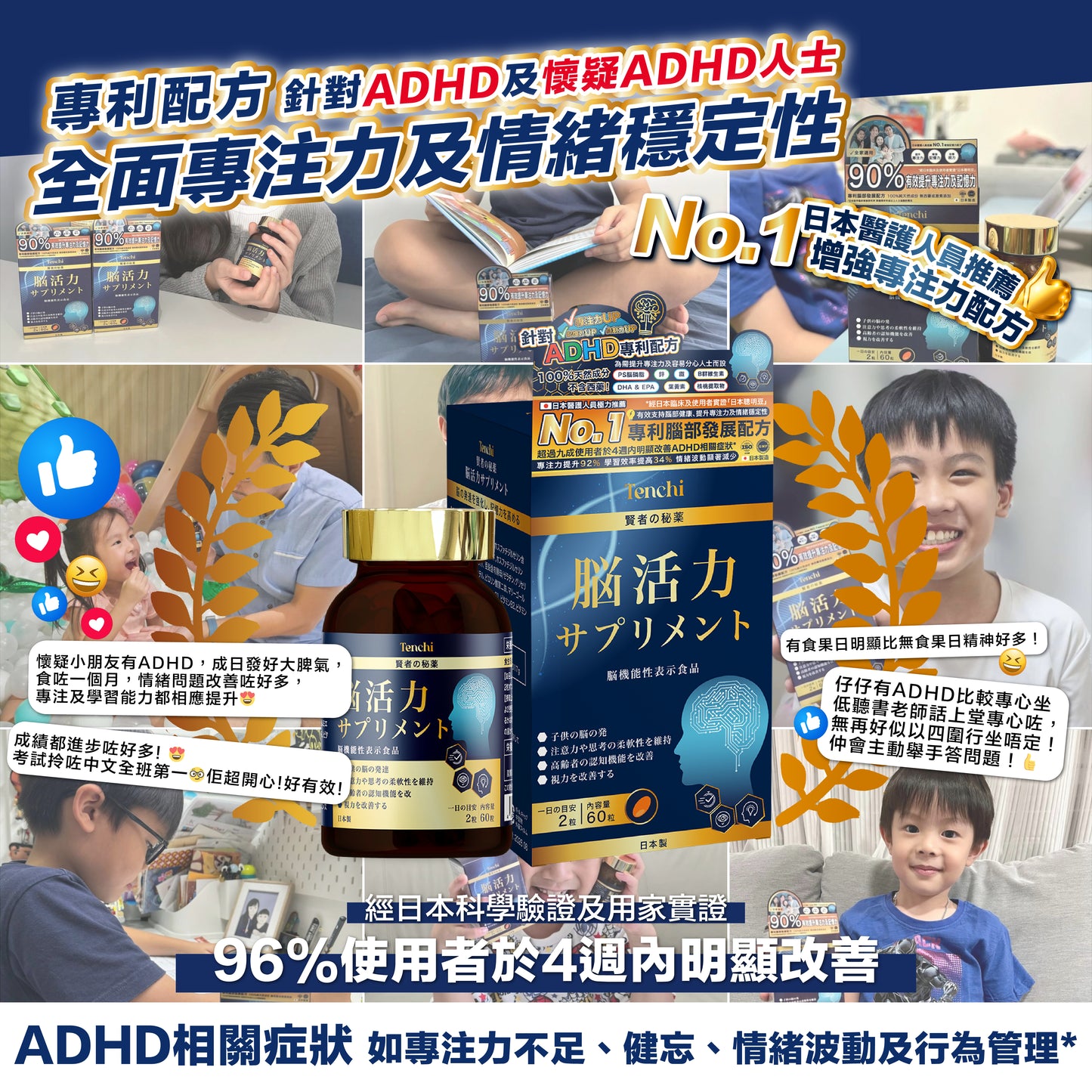
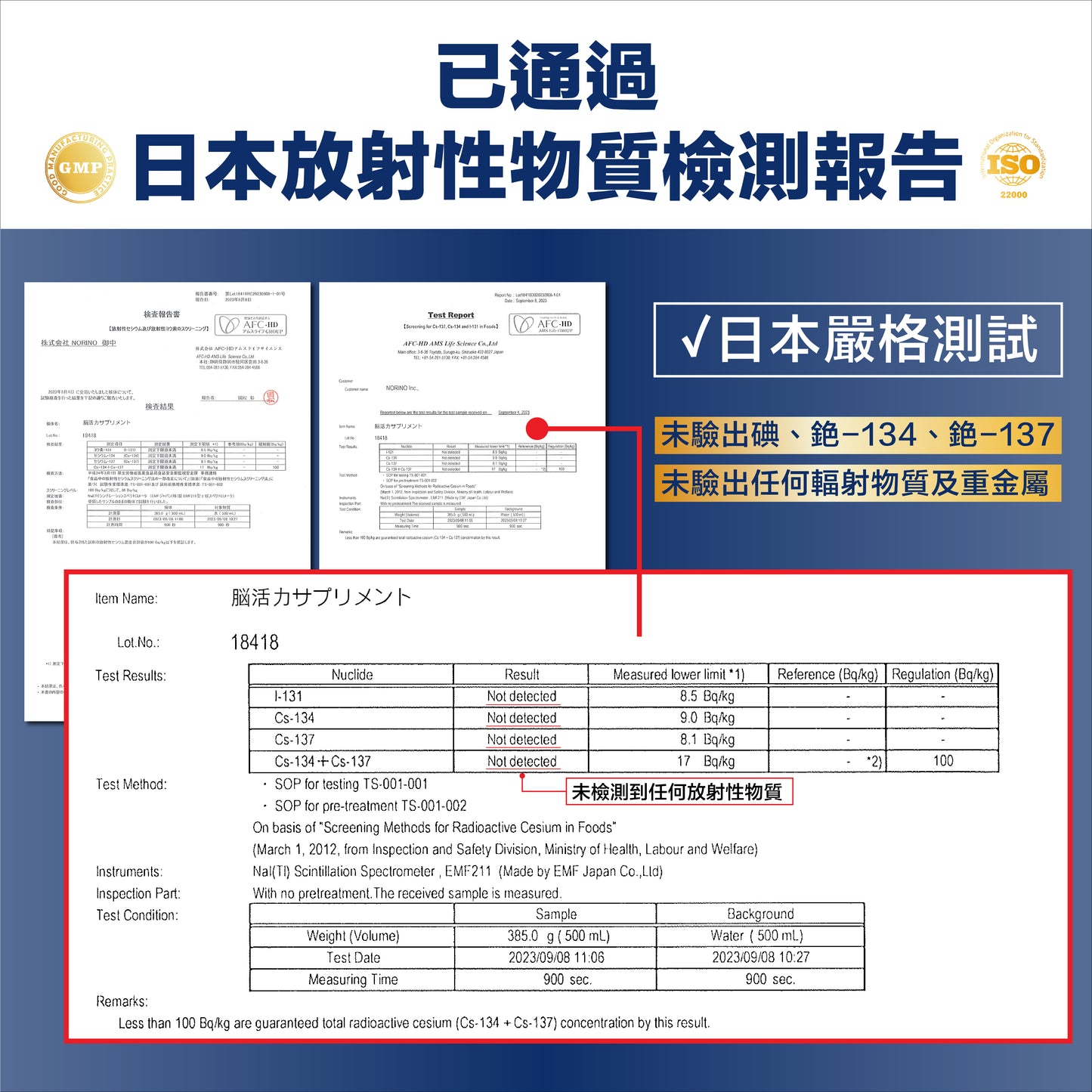
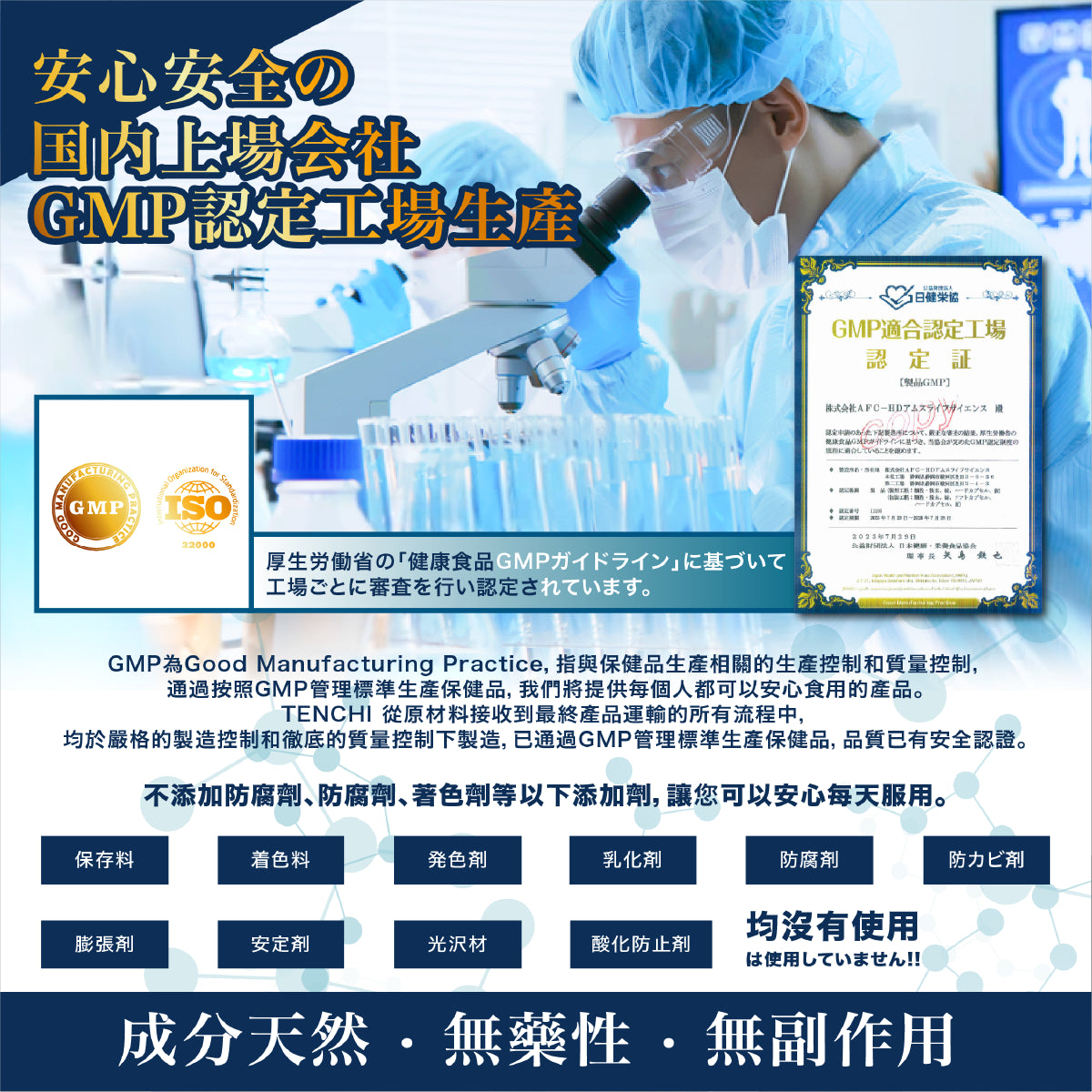
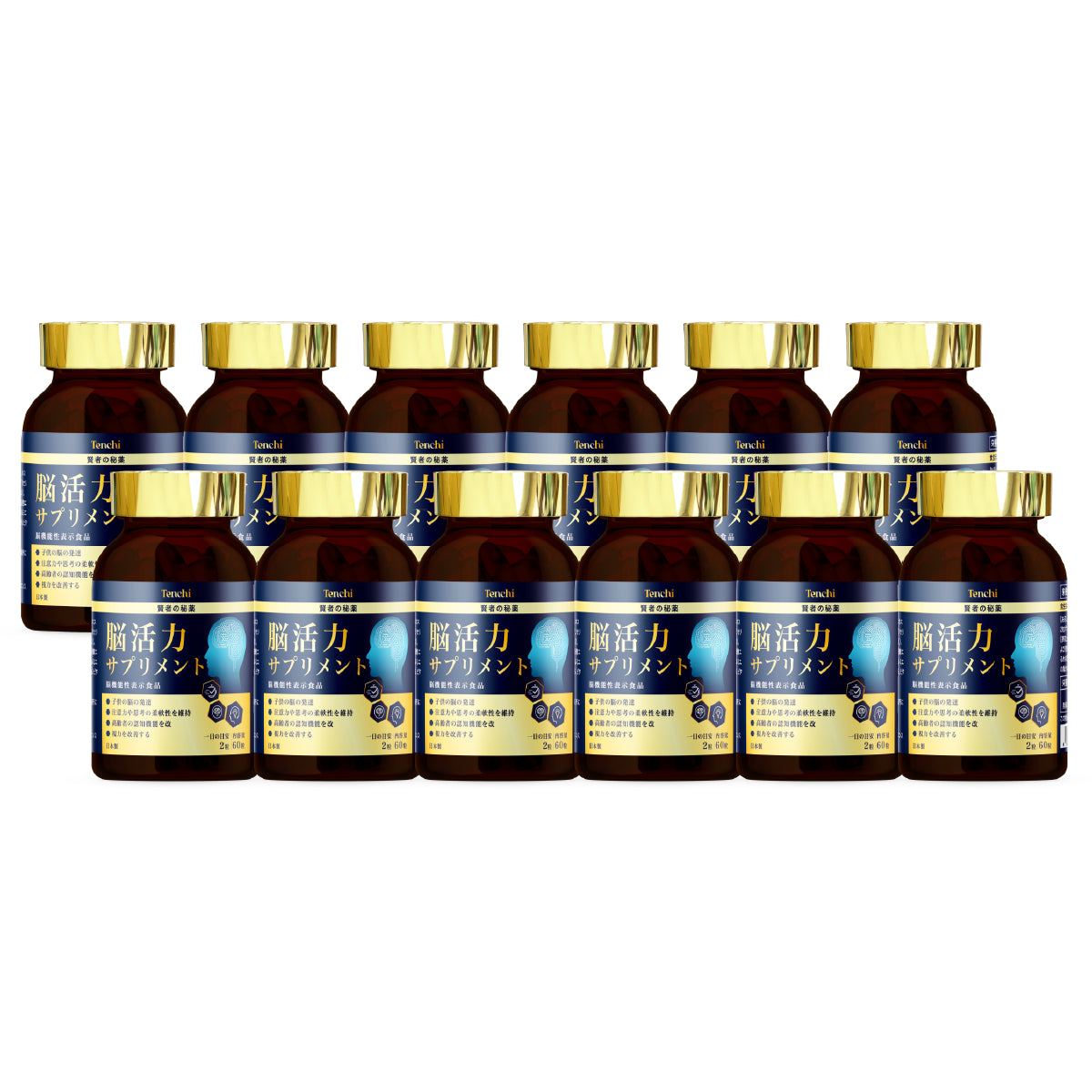
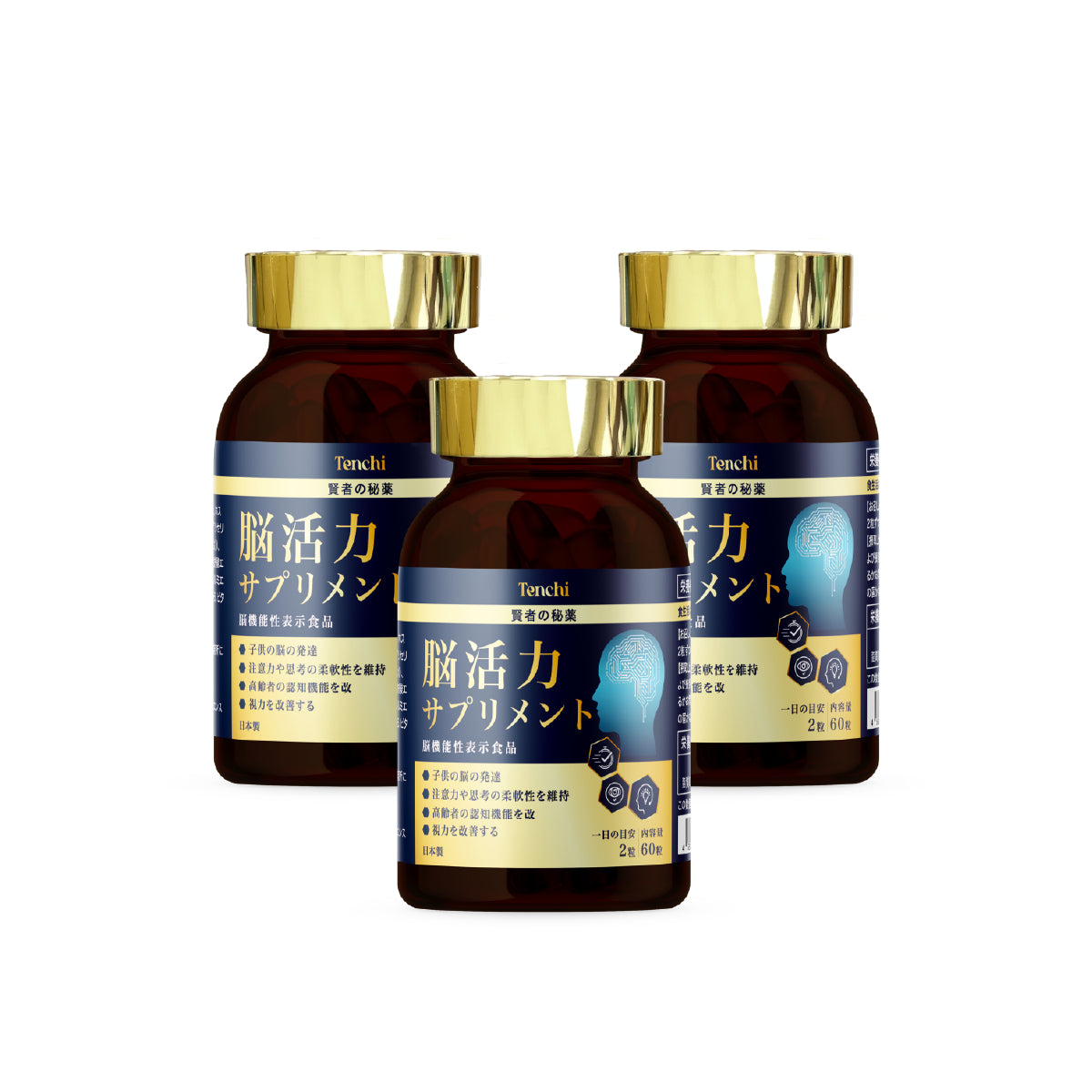
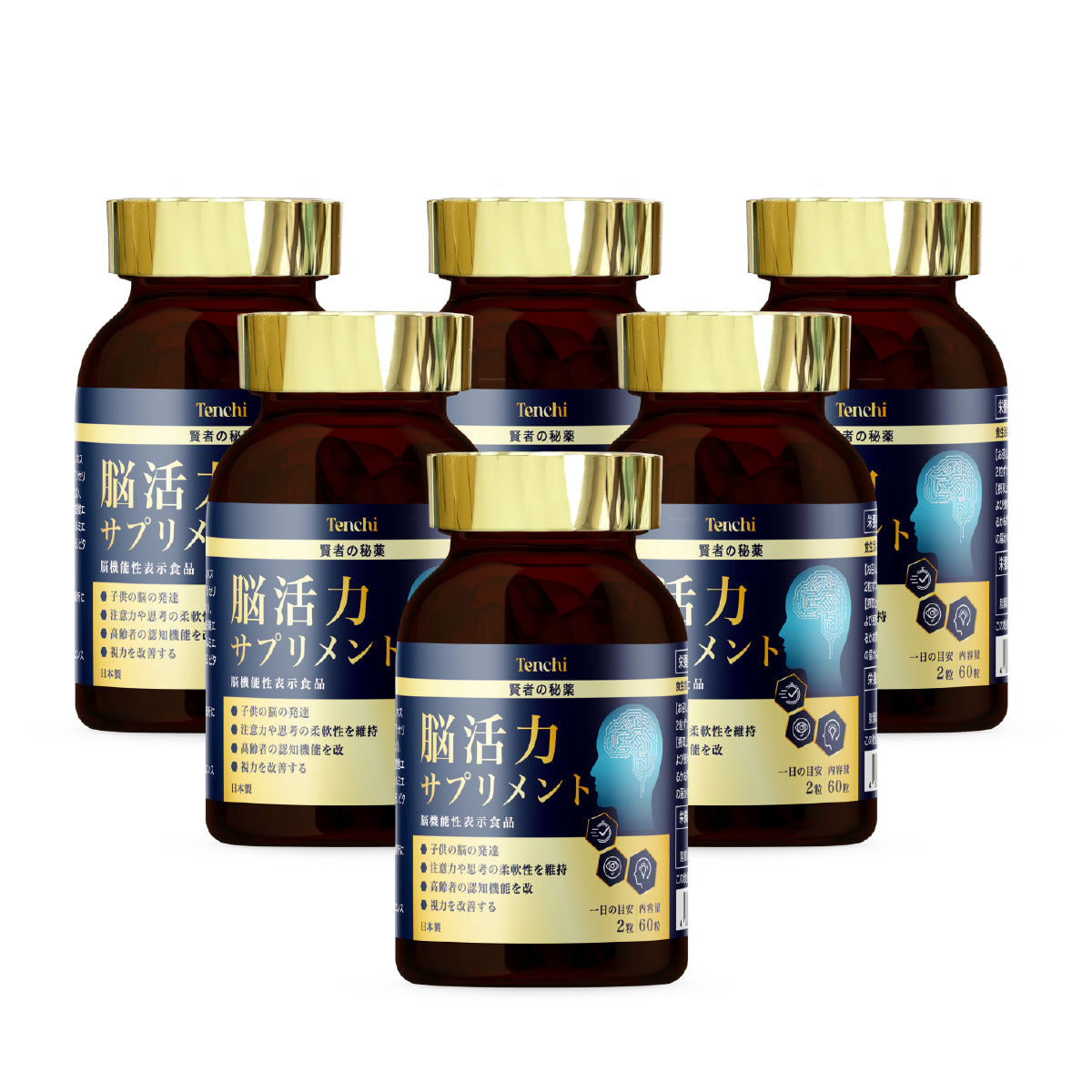
-
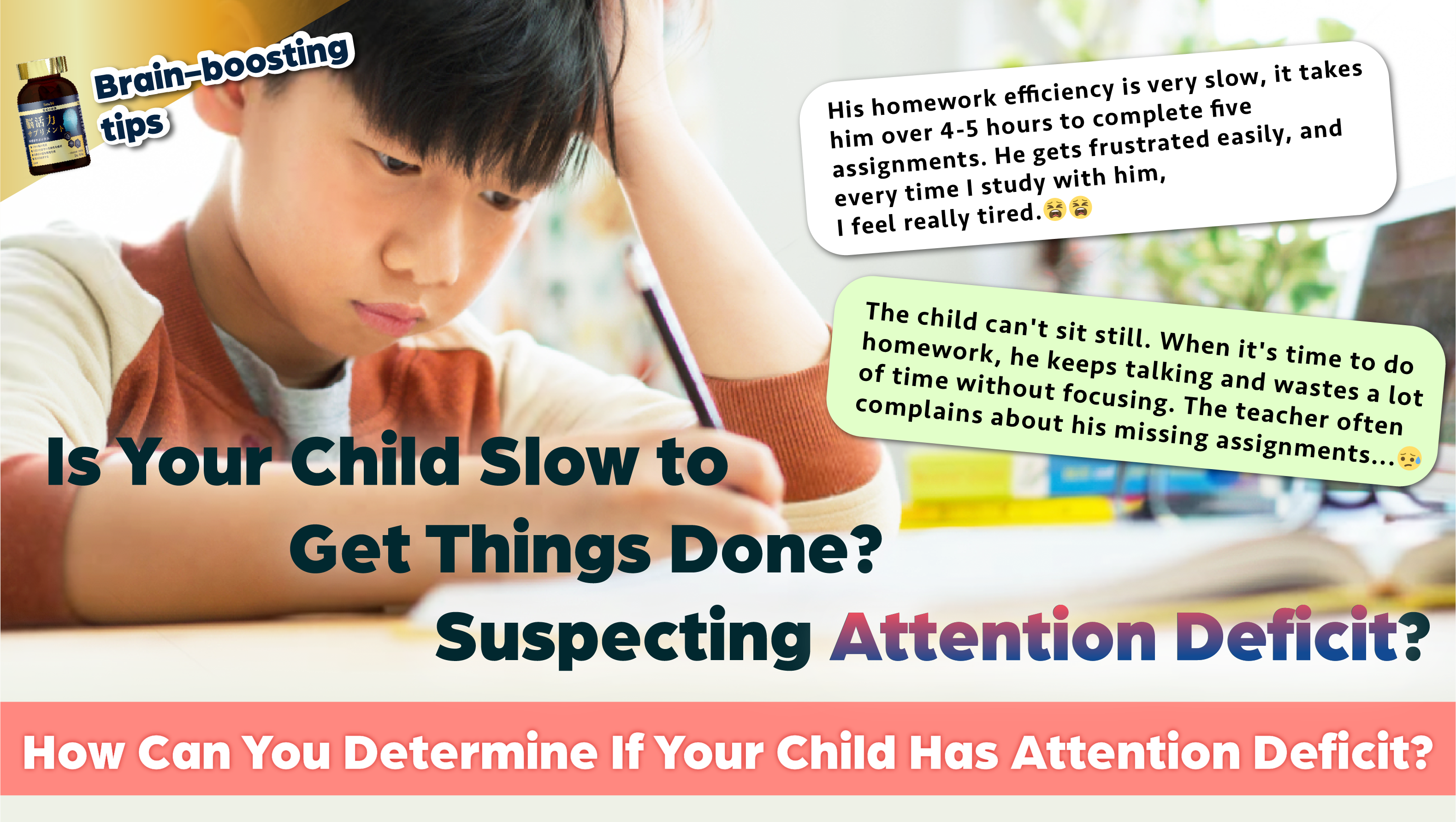
Is Your Child Slow to Get Things Done? Suspecting Attention Deficit?
Learn MoreDoes your child often seem restless, unable to sit still, or take a long time to finish tasks? Many parents run out of patience when helping their children study or complete homework, sometimes mistaking this behavior for mischief and scolding them. However, it may actually be a result of Attention Deficit (AD). What are the symptoms of attention deficit, and how can this issue be addressed? Let us explain!
-
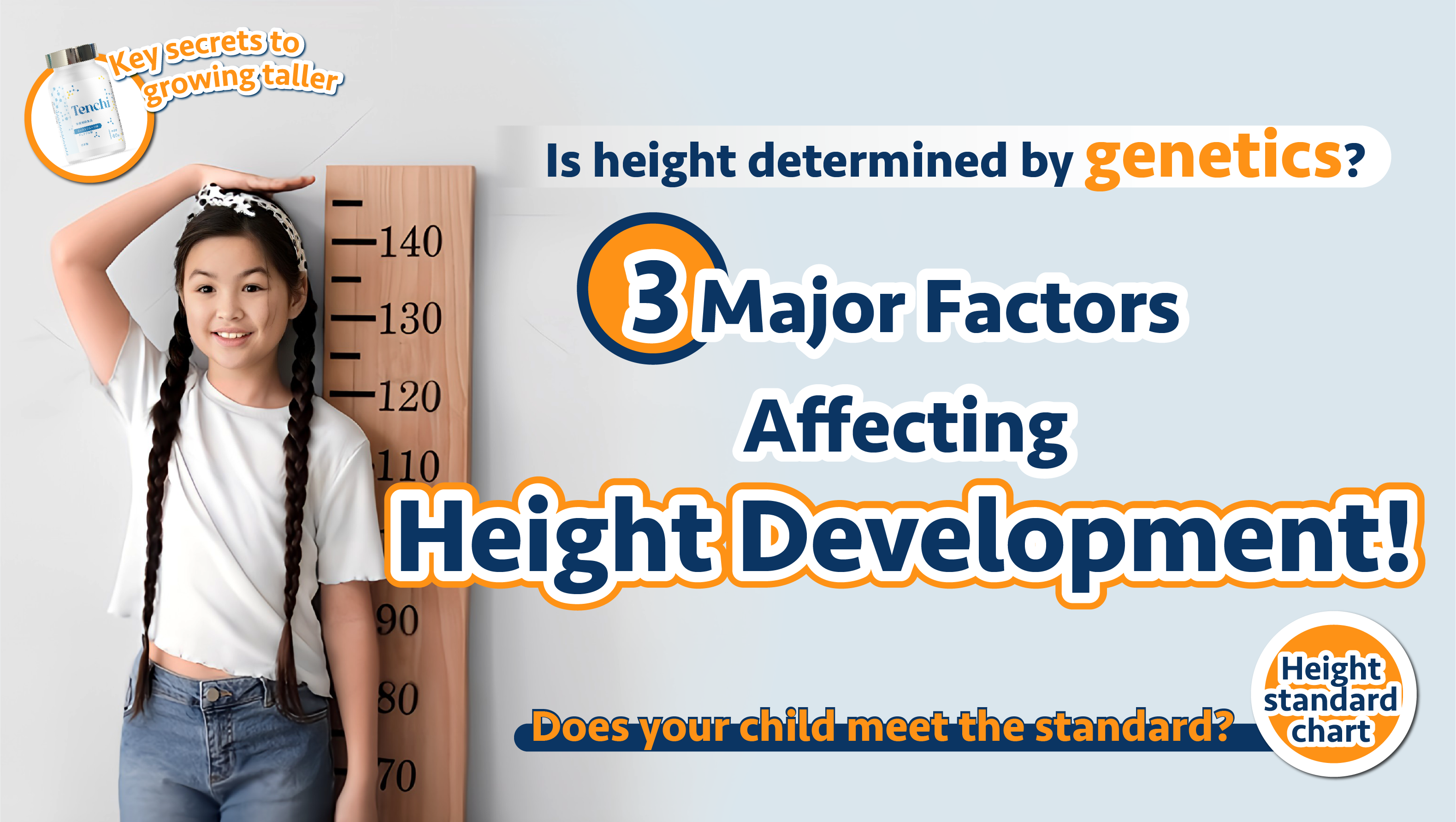
Parents, Take Note! 3 Major Factors Affecting Height Development!
Learn MoreMany people believe that height is closely linked to genetics. In fact, besides genetics, external factors play an even more significant role! As parents, how can you tell if your child's height is up to standard? Before the "golden growth period" ends, what methods can help your child grow taller? Let's discuss the three most important factors influencing height and teach you how to make the most of the "golden growth period" to easily surpass genetic height limits!
-

Say No to Steroids! Eliminate Eczema and Restore Your Baby-Smooth Skin!
Learn MorePeople with eczema often need to use topical steroids to control their condition. However, even with prolonged itching, it's important not to overuse these medications. Scratching the affected areas can lead to skin damage and expand the eczema's reach. Fortunately, many skincare brands are dedicated to researching solutions for the itching associated with eczema. A patented ingredient developed in collaboration with Kyoto University and Osaka University in Japan can quickly relieve eczema symptoms, alleviate itching, and help restore the skin barrier to address the problem at its source.
-

Learn This Trick! Easily Adjust Your Body to Become Slimmer!
Learn More"Losing weight is so hard." This is a sentiment many people share. For some, it even becomes a lifelong mission! Many resort to extreme methods like dieting in an attempt to shed pounds. At first, it may seem effective—people can lose 2 to 3 kilograms, or even more, in a short time. However, after some time, they hit a plateau. Once they resume regular eating, their weight rebounds, sometimes with serious health consequences.

























